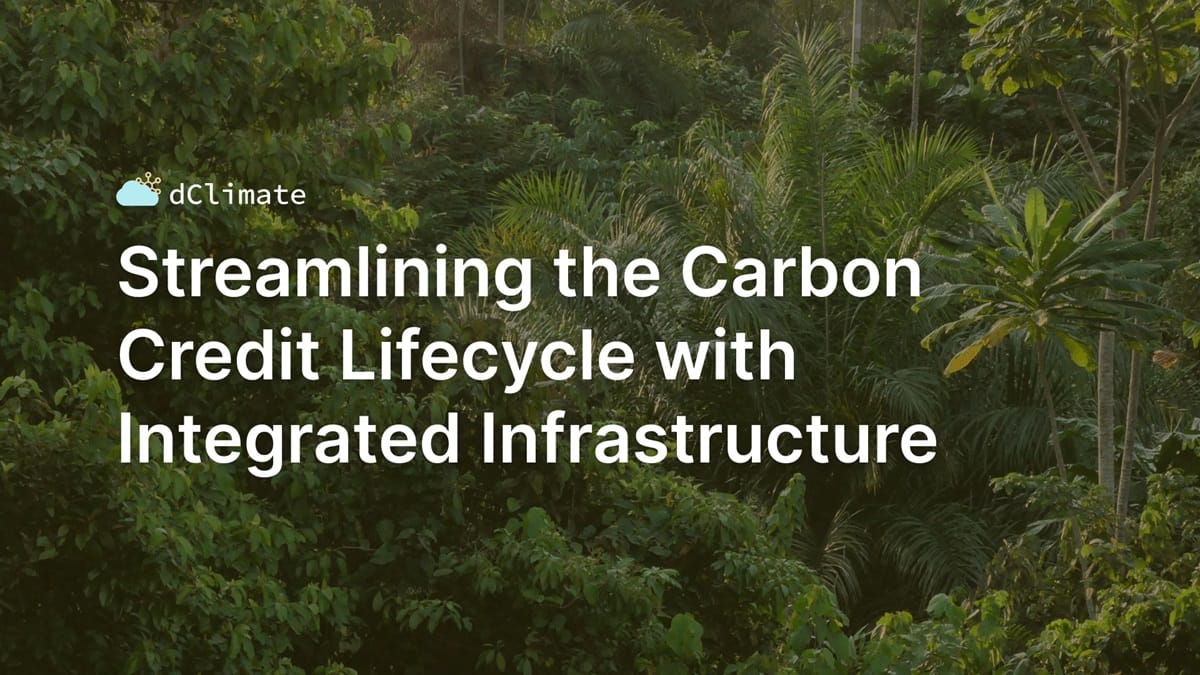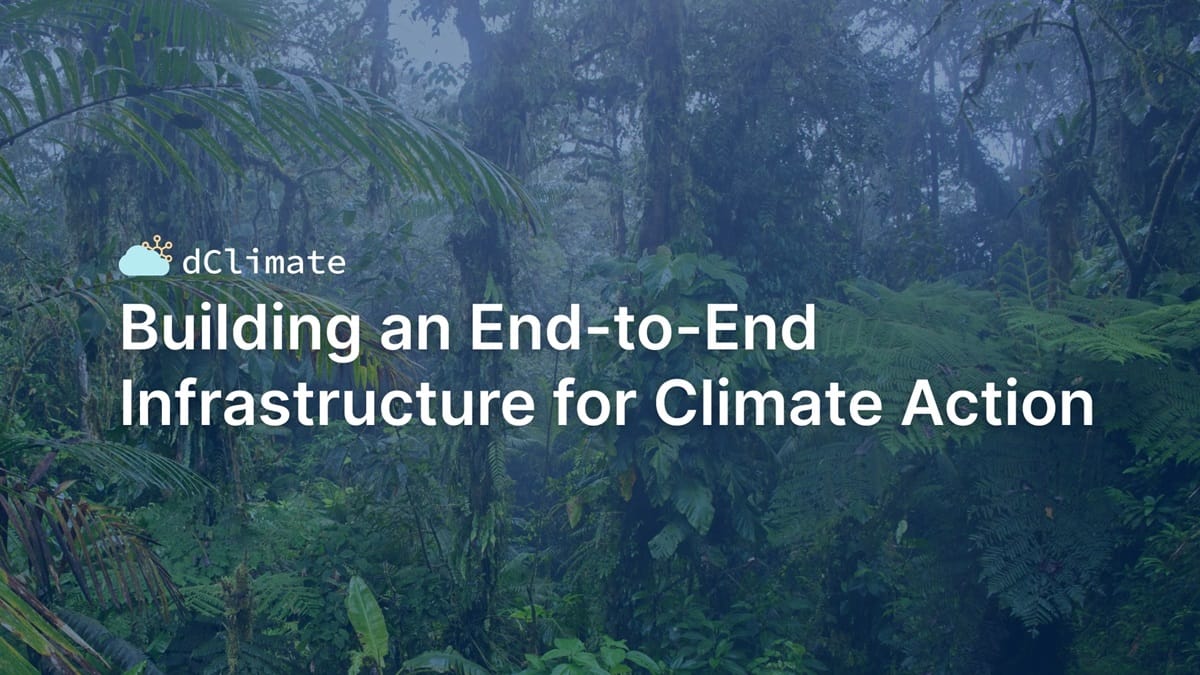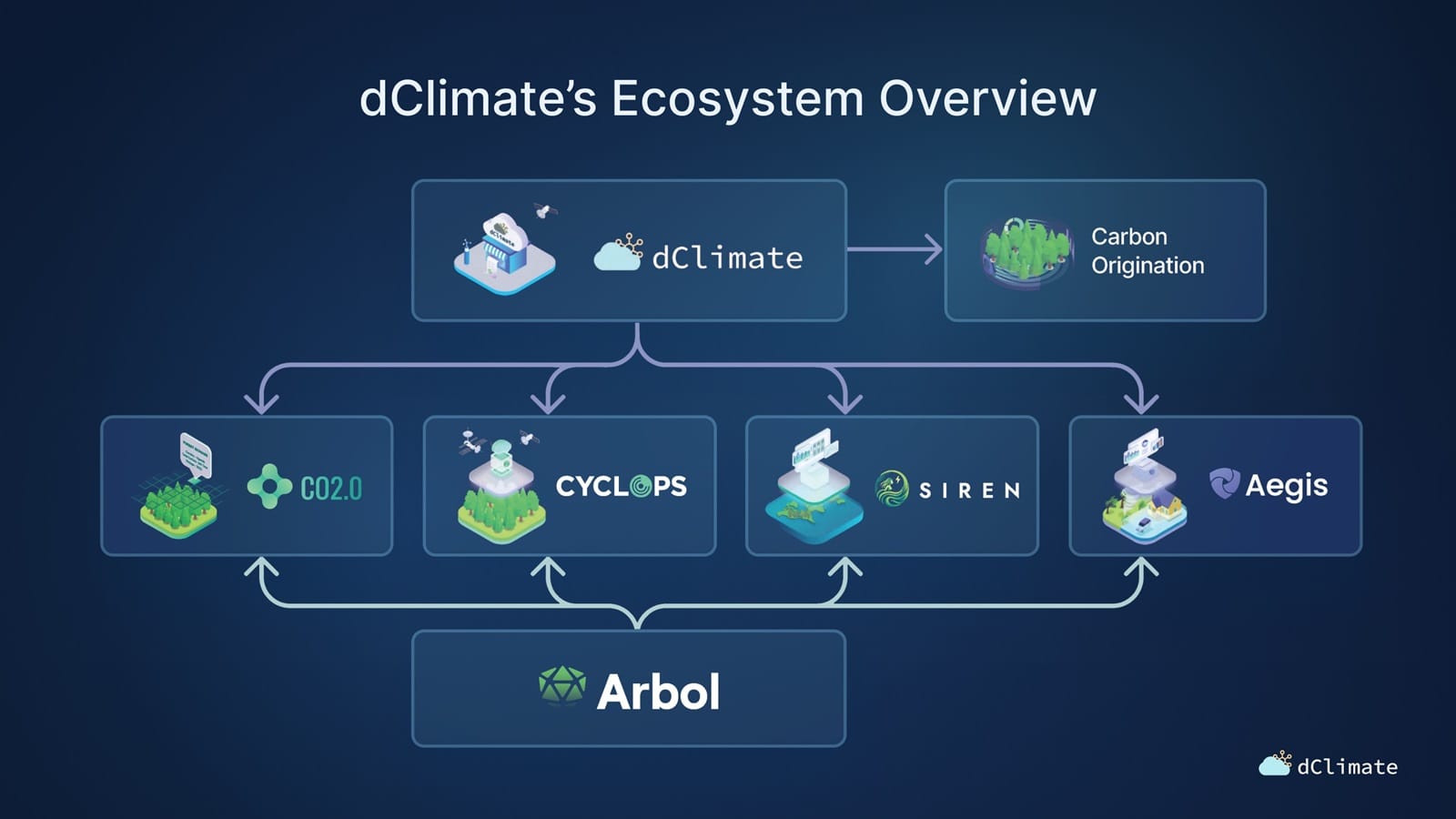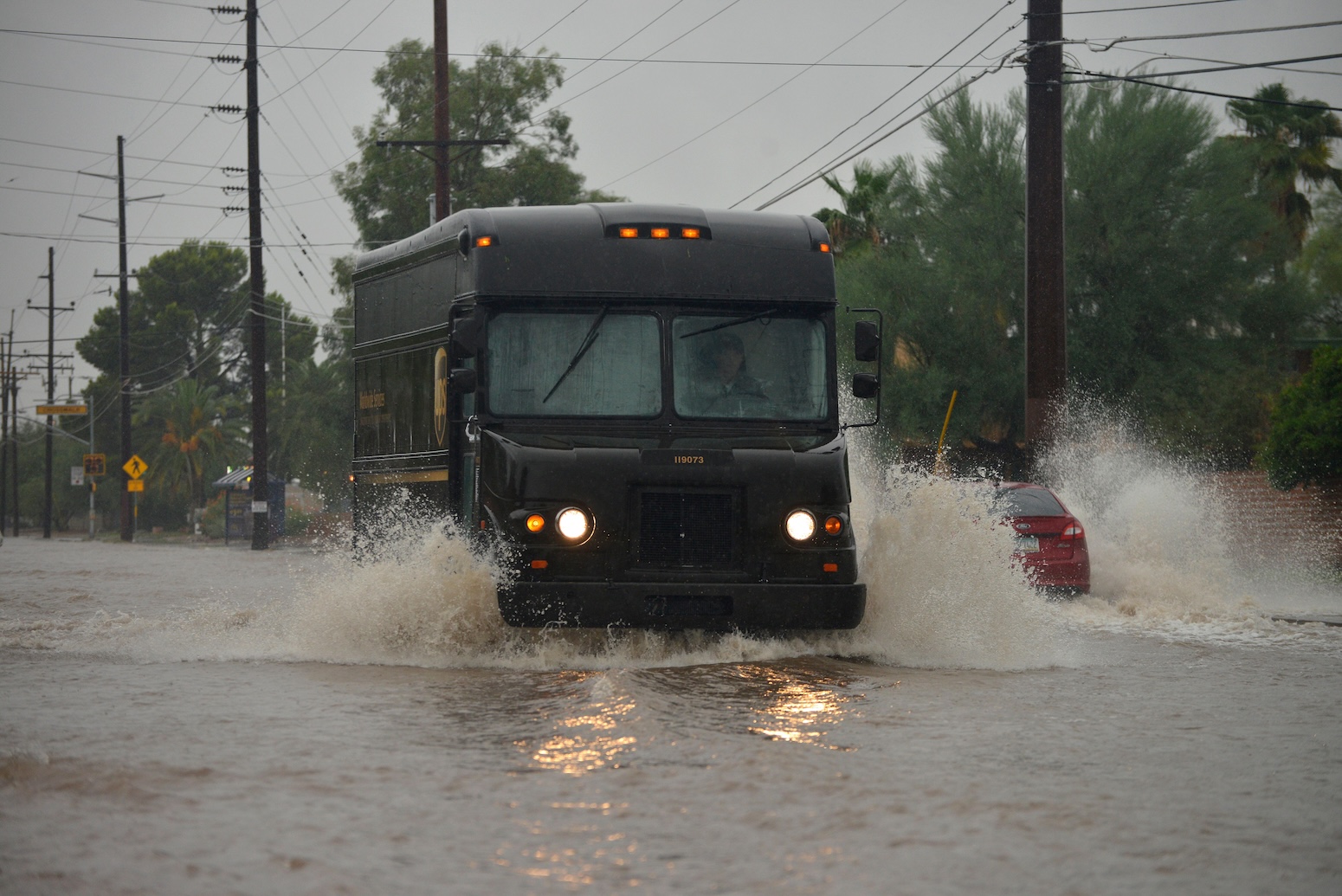Data ReFined #40: Streamlining the Carbon Credit Lifecycle with Integrated Infrastructure

⛅ Data ReFined is dClimate's biweekly newsletter, delivering the latest insights on carbon finance in the voluntary carbon market (VCM), climate risk management, and climate data.
In this edition:
Carbon Finance & Digital MRV
🌳 Building an End-to-End Infrastructure for Climate Action
🌳 Indonesia's $65B Green Fund from Carbon Credit Sales
🌳 Open Forest Protocol's High-Integrity Carbon Credits
🌳 Fixing the Fragmentation of Carbon Markets
Climate Risk Management
🛡️ Weather-Induced Supply Chain Disruption in the U.S.
🛡️ Not Built For This - A Podcast Series About Climate Risks in the U.S.
🛡️ Parametric Insurance for Kenyan Coffee Farmers
Climate Data & Intelligence
🌎 Digitizing Old Weather Records to Improve Modern Climate Data Systems
🌎 Arctic Weather Satellite’s First Images Capture Storm Boris
🌎 NOAA Debuts First Imagery from GOES-19 Satellite
Scroll down for our summaries of this news! 👇
Subscribe here and join over 4000+ readers!
Building an End-to-End Infrastructure for Climate Action
Our latest blog post delves into how dClimate is building an integrated ecosystem for carbon finance, spanning carbon credit origination, project development, digital MRV, blockchain-powered registries, and risk management solutions.
Learn how this approach revolutionizes the carbon market, unlocking the capital required to drive meaningful global climate action:



Indonesia's $65B Green Fund from Carbon Credit Sales
The fund aims to support large-scale environmental projects, such as reforestation and peatland restoration. By generating revenue through carbon credit sales, this approach reduces reliance on government funding. Challenges include scaling carbon credit sales to meet targets and ensuring high integrity for carbon projects.
More details are available in the article below:

Open Forest Protocol's High-Integrity Carbon Credits
Open Forest Protocol recently completed its financing seed round, and its methodology for issuing afforestation, reforestation, and revegetation (ARR) credits was reviewed by Renoster. The analysis found that credits generated through this approach are among the highest quality available in the voluntary carbon market today. Read More
Fixing the Fragmentation of Carbon Markets
A publication in the Financial Times highlights the need for global standards in carbon markets to address fragmentation and ensure scalability, arguing that policymakers should adopt compliance-based systems and boost carbon credit quality to meet climate goals. Read More

Weather-Induced Supply Chain Disruption in the U.S.
According to a new study, supply chains in the United States are expected to face increased disruptions due to extreme weather events driven by climate change. Industries relying on global supply chains will be most affected, highlighting the need for climate-resilient strategies to mitigate the impacts of intensifying hurricanes, floods, and heatwaves.
Find more insights in the article below:

Not Built For This - A Podcast Series About Climate Risks in the U.S.
The 99% Invisible podcast made a 6-part series exploring how climate change and extreme weather events impact transportation, manufacturing, and logistics in the United States. The series highlights the need for climate-resilient supply chain strategies in industries reliant on global supply chains. Read More
Parametric Insurance for Kenyan Coffee Farmers
Liberty Mutual Reinsurance, Sprout, and Britam have launched a parametric insurance solution to shield Kenyan coffee farmers from climate-related losses. The product offers payouts based on weather conditions, helping farmers build financial resilience and protect their livelihoods amidst growing climate risks. Read More

Digitizing Old Weather Records to Improve Modern Climate Data Systems
Copernicus’s data rescue (DARE) initiative focuses on recovering and digitizing historical weather data to enhance climate modeling and forecasts. Since launching a new online portal earlier this year, climate records from over 140 projects, including crucial data from the Congo Basin, have been added.
Dive deeper into this topic by reading the full article:

Arctic Weather Satellite’s First Images Capture Storm Boris
The European Space Agency's Arctic Weather Satellite has captured its first images, including Storm Boris, using a prototype microwave imager. This satellite is part of a mission to improve weather forecasts by providing real-time atmospheric data. Read More
NOAA Debuts First Imagery from GOES-19 Satellite
The GOES-19 satellite's primary instrument captures high-resolution images of Earth using 16 different channels, each detecting energy at various wavelengths to gather data on the atmosphere, land, and ocean. The new imagery improves understanding and forecasts of severe weather events. Read More
Thank You For Reading Our Newsletter! 💙
We greatly appreciate your interest and support! If you enjoyed this newsletter, please consider forwarding it to your network to increase awareness of these critical climate topics.
About dClimate
dClimate’s decentralized and open climate data infrastructure powers a wide range of applications, including climate risk assessments, parametric insurance, and climate intelligence platforms for carbon and commodity markets.
⛅ Visit our website | 📊 Discover our products
Join the dClimate Community!
We welcome your comments, feedback, and likes. Follow us on the channels below to stay updated and start building in our decentralized climate data ecosystem. 👇



